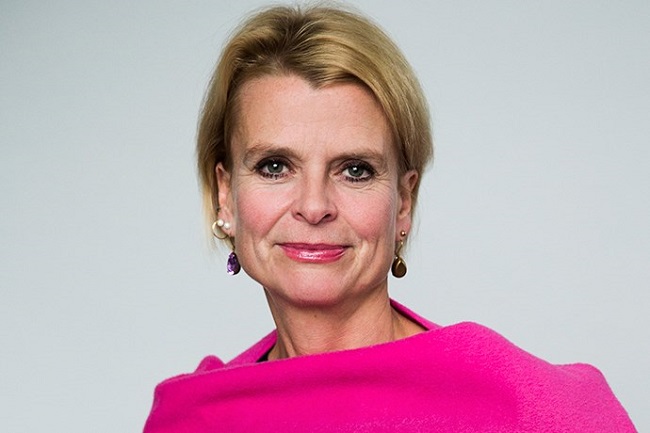Regnér: Gender equality good for democracy

Minister Regnér says investment in gender equality is good for democracy and economic growth
Photo: Kristian Pohl/Government Offices
On March 15 Sweden’s Minister for Children, the Elderly and Gender Equality Åsa Regnér delivered a speech (below) at the Commission on the Status of Women 2016 being convened in New York, the United States of America:
Distinguished delegates,
It is an honour for me to address the 60th session of the Commission on the Status of Women. Sweden aligns itself with the statement made by the Netherlands on behalf of the European Union and its Member States.
Sweden regards this year’s CSW session as an occasion for a strong and resolute reaffirmation of the 2030 Agenda and of the Beijing Declaration and Platform for Action. The adoption last year of the 2030 Agenda is an achievement for UN-led multilateralism. Sweden is fully committed to engaging with other Member States, and all stakeholders, to ensure its effective implementation both nationally and internationally.
Mr/Madam
Sweden has a feminist government. This reflects a strong commitment and strong leadership. The Swedish Prime Minister clearly stated his intention to increase gender equality in the Statement of Government Policy.
One of the expert reports on this year’s session points out that the lessons of the last three decades have taught us that the state has a key role to play in facilitating a development strategy that promotes gender equality. I am firmly convinced that this is the case. In Sweden, the welfare state has played a pivotal role in advancing gender equality, which has yielded substantial social and economic returns.
In the creation of the Swedish welfare state, gender equality has been a major factor in many reforms, and particularly important in the labour market. Access to affordable child care services and a more equal division of parental leave have been essential for women’s and men’s participation in the labour market. So have individual taxation and sexual and reproductive rights, including abortion rights. All these reforms have had an important impact on women’s earnings, well-being and bargaining power in the household.
Gender power relations and traditional gender stereotypes of masculinity associated with violence stand in the way of women’s and girls’ empowerment and gender equality. This is why, we as leaders, must focus much more on the root causes of violence. More effective prosecution of perpetrators is essential, as is a greater emphasis on lowering the threshold for men to seek help to change their violent behaviour. We also need to invest in violence prevention in schools and municipalities to change norms and attitudes associated with destructive masculinity, violence and sexist behaviour.
To promote healthier gender norms to engage men and boys has been shown to reduce men’s violence against women and children.
Mr/Madam Chair,
Sweden will continue to stand up for the rights of all women and girls. Their access to sexual and reproductive health and rights, including contraception and safe and legal abortion are crucial. Sweden is deeply concerned that every year (more than half a million) women die in pregnancy and childbirth, or from unsafe abortions that disproportionately affect poor women. Investments in these areas are investments in women’s empowerment, in social justice and in human rights. Unfortunately, women and girls have been let down in many parts of the world in this respect. They pay a high price for religious and political fundamentalism.
Like many other countries around the world, Sweden is currently providing security and safety to people fleeing war, persecution and oppression.
For women and adolescent girls, a crisis can lead to even greater risks of gender-based violence, including sexual violence, early marriages, and unintended and unwanted pregnancy. Sweden reaffirms its commitment to UN Security Council resolution 1325 and subsequent resolutions. While important steps have been taken, women are still underrepresented in peace building efforts and in peace negotiations. Therefore, within the framework of our feminist foreign policy, we have increased our contribution to women, peace and security issues, with a specific focus on promoting women’s participation in mediation and peace processes.
Sweden is deeply concerned about the rise of new forms of extremism and fundamentalism that often have the explicit aim of suppressing women’s and girls’ enjoyment of their human rights, including honour related violence and oppression. The Swedish Government therefore stresses the importance of incorporating a gender perspective in all measures to prevent violent extremism.
Ladies and Gentlemen,
Investments in gender equality are investments in democracy and economic growth for the future. As stated in both the 2030 Agenda and in the Addis Ababa Action Agenda, domestic resource mobilisation and political will is crucial in financing for sustainable development. Governments must allocate resources to set clear targets and to take action.
Let us continue to work together to ensure that we fulfil the commitments we made in Beijing and Cairo over 20 years ago and in New York last year. And let us recall that the empowerment of women and girls is the empowerment of all humanity!
Thank you.
Source: Swedish Government

